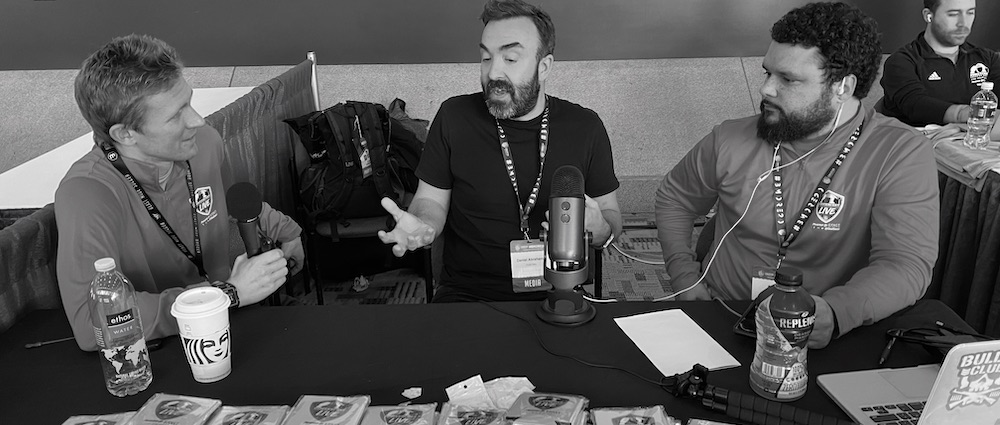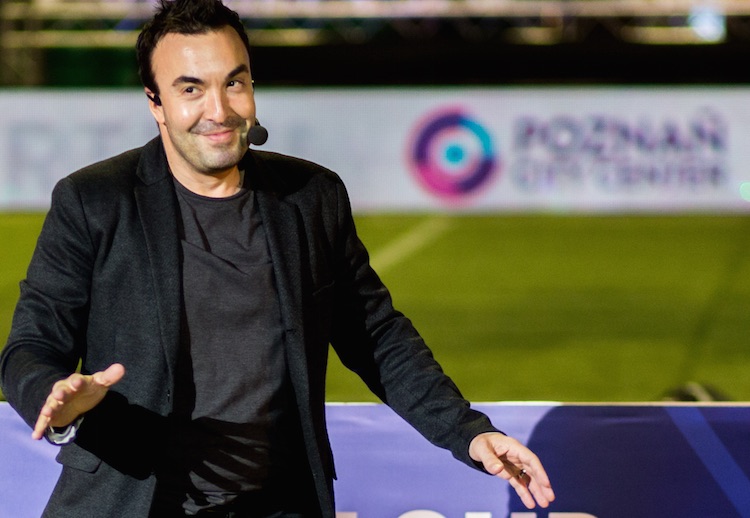Soccer Series: The Difference Between ‘Letting it Happen’ and ‘Making it Happen’
Want to get ahead and really help your soccer career reach the next level? Read Dan Abrahams on SoccerToday. Learn to think, train and play like the best soccer players in the world — learn from the man who works with them and helps them be better.
Dan Abrahams simplifies complex psychological strategies with the aim of demystifying sport psychology.
A global sports psychologist and author specializing in soccer, Dan Abrahams is based in England and works with professional soccer players in the English Premier League (EPL). Abrahams has helped hundreds of soccer players – From working with players at Crystal Palace to QPR, Fulham, and West Ham among others, Abrahams makes a huge difference in a player’s performance. Abrahams has authored several books and has a Soccer Academy as well.

DAN ABRAHAMS: ARE YOU PLAYING FLOW OR PLAYING CLUTCH?
One of the wonderful things about hosting a podcast is that it helps you to sense-make around the subject matter you’re talking about. In my case, The Sport Psych Show podcast (as the name suggests), helps me make sense of all things sport psychology (which just so happens to be my profession as well).
The Sport Psych Show has just hit a huge milestone. Over 1 million downloads. Not bad for a niche area. And the fact most of my guests are academic sport psychologists, I’d boldly suggest that it’s a niche within a niche. I’m proud of it.!
But I couldn’t do it without the wonderful guests I have on. I’ve learned so much, and of the dozens of new learnings I have each month (yes, it really is a coach-changing podcast), one area that has recently been discussed a lot is the idea of psychological states related to performance.
Specifically, the difference between the psychological state in soccer of ‘letting it happen’ and the psychological state of ‘making it happen’.
Before we do a deeper dive in these two states, let’s firstly define what a psychological state is. When related to performance, it’s the subjective experience of performing. Simple! And it’s largely believed in sport psychology that all performers have optimal psychological states that help them perform well.
In other words, an optimal psychological state for performance gives a player a better chance of high performance (or their best possible performance).
I have this conversation a lot with players. I ask them about their best mindset when they play, and many of them will tell me that they play their best when they’re not thinking. They play their best when things just slot into place for them. Things just happen. They’re not thinking, they’re just doing!

There’s a name for this kind of psychological performance state.
It’s called flow, and it relates to the ‘letting it happen’ state.
In flow, players have an intense focus and an absorption on the task at hand.
With irrelevant thoughts and emotions ignored, they enjoy a sense of everything coming together. Playing feels easier, and they feel that they have a great deal of time to execute their actions and responsibilities.
“When I play at my best, and when I have my best mindset, I’m not really thinking” tends to so often be the feedback.
Read: DAN ABRAHAMS – HELP FOR PARENTS OF VERY YOUNG SOCCER PLAYER
And this is great. What I say to players is this: “Fantastic, it’s brilliant you’ve had these experiences. They’re so much fun. This is called flow, and I want you to enjoy every second of them. But they are a rarity in performance.”
Because they are a rarity. Flow is not a regular visitor to our games sadly. Usually in pressurised performance situations, players have to strive to engage with a ‘make it happen’ state. And this is closer to what can be called a clutch state.
In clutch, players are having to work really hard – not just physically, but also mentally.
In clutch situations, players are using self-talk to get them through tough-to-deal-with moments. They’re using attentional cues related to the game model. They’ll likely be using mental techniques to manage unhelpful thoughts and feelings as they emerge and dissolve as the game unfolds.
In clutch, players are ‘making it happen’.
By and large I teach players to ready themselves for clutch performances, while recognising that they may be fortunate to experience flow.

Dan Abrahams’ Advice to Soccer Players:
How can a soccer player do this?
Here’s a quick four ideas:
- Prior to the game, picture what a clutch performance looks like and feels like. If you’re a player you need to create a blueprint on your mind that readies you to deal with tough moments, as well as the thoughts, feelings, and emotions that can distract you from your game.
- Rehearse clutch to perform clutch.
- Be ready to use self-talk. This can be instructional self-talk related to responsibilities, or it can be motivational self-talk that aids with energy and effort. It could be positive self-talk that help you as a player retain a sense of certainty when everything about you screams “I can’t do this”.
- Recognise what can and can’t be controlled. A performance outcome such as ‘completing a pass’ can be influenced but not controlled. A performance process such as ‘executing positive passes’ is much more controllable.
- Players should stick to appraising the process of performance rather than performance outcomes as they’re playing.
- In that way they give themselves a better chance to dampen down the kind of thoughts, feelings, and emotions may intrude on performance.
- If, during warm-up a player is feeling great and everything seems to be clicking for them, it may be a flow day. Awesome! No need to do anything other than enjoy the moment, love the experience of playing, and crack on enjoying every second of moving, and playing the game you love with the people you enjoy playing with.
If it’s flow, embrace it. If it’s clutch, be ready for it.

What do people say about Dan Abrahams?
“Dan motivates players to incorporate mental skills into their routine. His methods are simple and effective,” said Steve McClaren, Former Premier League & England Football Manager
Read: DAN ABRAHAMS ON “EVERY WORD” A COACH SAYS HAS IMPACT, DAN ABRAHAMS: THIS IS HOW SOCCER PLAYERS CAN IMPROVE THEIR GAME, DAN ABRAHAMS: SOCCER GAMES ARE CHAOTIC – BE BRAVE, DAN ABRAHAMS ON THE LENS OF PERSPECTIVE & BEING A GREAT SOCCER COACH
“With his deep knowledge of sport psychology, Dan helps coaches understand thescience behind high performance and the methods that underpin effective training,” said Eddie Howe, First Team Manager
Newcastle United FC.







